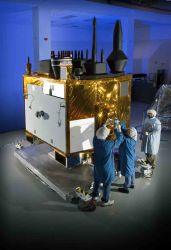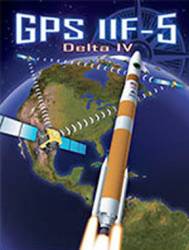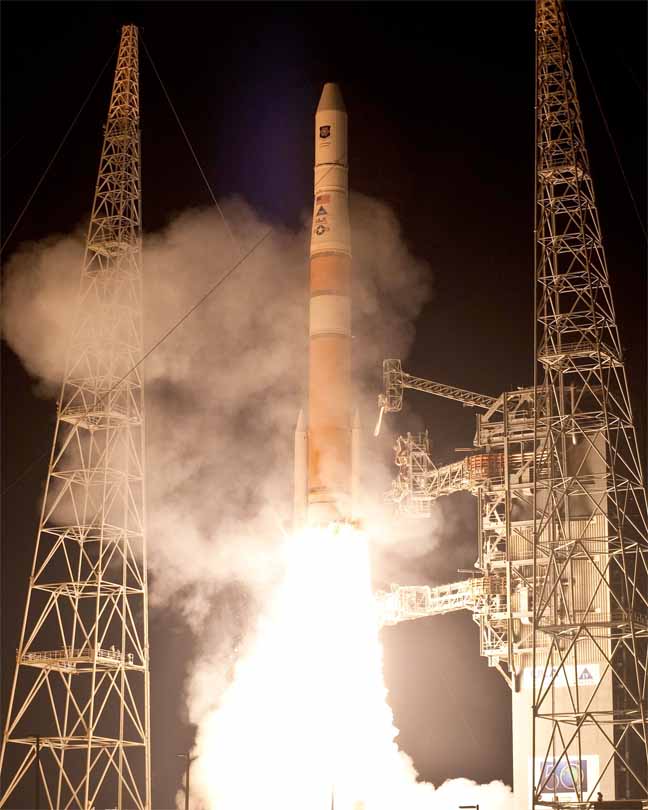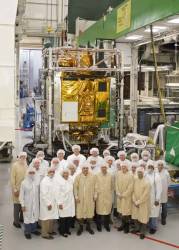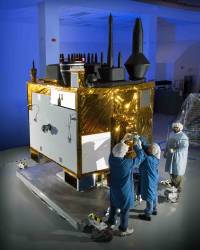 First Block IIF Satellite (Boeing)
First Block IIF Satellite (Boeing)[updated Februaary 16] The first Block IIF satellite is undergoing final launch preparations after arriving at Cape Canaveral Air Force Station in Florida aboard a Boeing-built C-17 Globemaster III airlifter.
Space Vehicle 1 (SV-1), the first of 12 GPS IIF satellites for the U.S. Air Force, will lift off on a United Launch Alliance Delta IV vehicle later this year, with the first launch window in mid-May.
[updated Februaary 16] The first Block IIF satellite is undergoing final launch preparations after arriving at Cape Canaveral Air Force Station in Florida aboard a Boeing-built C-17 Globemaster III airlifter.
Space Vehicle 1 (SV-1), the first of 12 GPS IIF satellites for the U.S. Air Force, will lift off on a United Launch Alliance Delta IV vehicle later this year, with the first launch window in mid-May. With the impending space vehicle designation SVN62, the Boeing-built generation of spacecraft will provide the operational civil L5 signal, an extended design life of 12 years, and faster processors with more memory.
Meanwhile, Boeing is gearing up to begin construction on the rest of the 12-satellite block on its “pulse” assembly line at the company’s El Segundo, California, facility.
To prepare for the launch of SV-1, the SV-2 spacecraft in September successfully completed a consolidated system test — a set of one-time, system-level design verification and validation tests involving the space vehicle, the ground-based control segment, and user equipment. In addition, GPS operational control stations successfully commanded the space vehicle as they will do when the satellite is in operational orbit. Earlier this year, SV-2 was also used as a "pathfinder" to validate transportation equipment and processes, as well as launch-site test procedures and equipment.
The GPS Joint Program Office (now the GPS Wing) awarded the contract to Rockwell Space Systems Division (later acquired by Boeing) in 1996. The original contract called for up to 33 spacecraft to be built, although the Air Force ultimately ordered only a dozen.
At the time, initial delivery of the satellites was scheduled for April 2001 with the first launch expected in January 2002.

